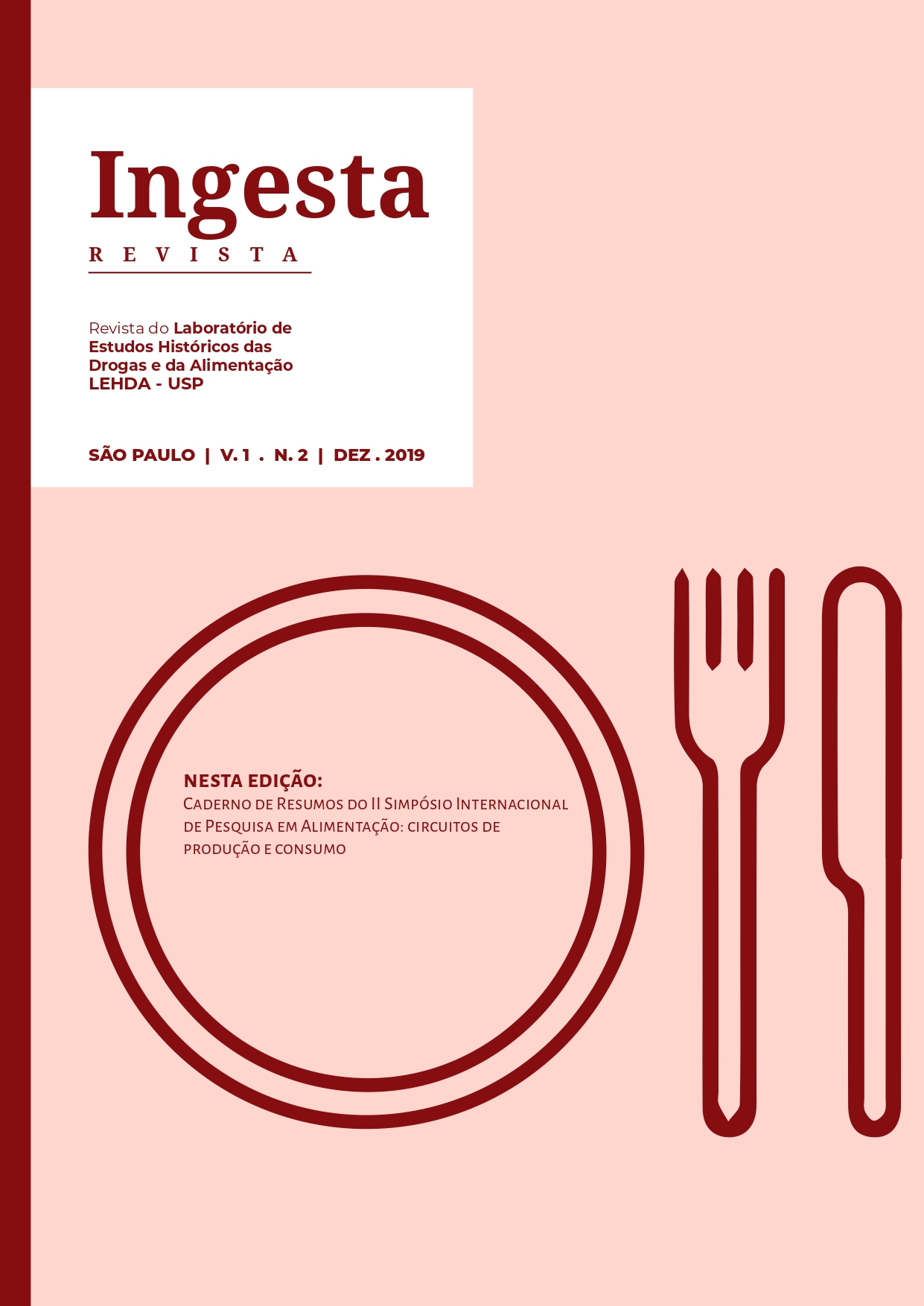Entre a saúde e o prazer
as receitas culinárias do livro Kitāb al-ṭabīẖ
DOI:
https://doi.org/10.11606/issn.2596-3147.v1i2p182Palavras-chave:
Receita, Saúde, Alimentação, Península Ibérica, PatrimônioResumo
Between pleasure and health, why should we have to choose?
Though this combination did not mainly concern the culinary tradition of the Christian Middle Ages, on the other hand, it fits fully into an Arabic tradition of both East and West of the said period.
In the late Middle Ages under Islamic domination, doctors, agronomists or botanists, offer –through multiple medical treatises on food or agriculture–, culinary recipes good for health. Thus, for Ibn Rush, Ibn Rāzī, Avicenne or Maimonides –as for many others scholars–, foodstuffs play a key role in its benefits for health. In this way, cookbooks occupy pride of place in this alliance between health and cooking. Therefore, the culinary recipes of half a dozen cookbooks of the Muslim Middle East dating back to the 10th-14th centuries, suggest this combination: listen to your body, take pleasure when you eat, do it according to your health and eat in a measured way. Cookbooks of the Iberian Peninsula written in Arabic in the Dar al-Islam testify to the transmission –from the Muslim Middle East– of the medico-culinary tradition based on humoral theory and culinary practices.
This paper will focus on the place occupied by dietetic in the first known cookbook of the Iberian Peninsula: the Kitāb al-ṭabīẖ [The cookbook]. Its anonymous author quote Galen and Hippocrates that, therefore, inscribes the Kitāb al-ṭabīẖ in the influence of the Greek dietetic tradition. Furthermore, the knowledge of the anonymous author concerning medicine, dietetic, and cuisine is undeniable.
Through half a thousand recipes, I will first present a reflection on this source commonly named “The Cookbook”, and then underscore the proportion of dishes containing medical recommendations. Then I will offer an approach to frequently used foodstuffs in the recipes where health seems to take precedence over the pleasure of eating the dish. Curing the illness, avoiding it, take pleasure, what is the goal of the culinary recipes? Thus, the aim is to identify both the most common dietetics recommendations and the disease that seem the most important to avoid. Finally, I will provide a glimpse of one of the most characteristic culinary recipes of this alliance health/pleasure that can offer the Andalusian cookbook. A brief reflection can be conducted on the current phenomenon that shows the willingness to return to healthy food which recommendations can be found in the cookbooks dating from the Middle Ages.
Downloads
Referências
Downloads
Publicado
Edição
Seção
Licença
Autores que publicam nesta revista concordam com os seguintes termos:
- Autores mantém os direitos autorais e concedem à revista o direito de primeira publicação, com o trabalho simultaneamente licenciado sob a Licença Creative Commons Attribution que permite o compartilhamento do trabalho com reconhecimento da autoria e publicação inicial nesta revista.
- Autores têm autorização para assumir contratos adicionais separadamente, para distribuição não-exclusiva da versão do trabalho publicada nesta revista (ex.: publicar em repositório institucional ou como capítulo de livro), com reconhecimento de autoria e publicação inicial nesta revista.
- Autores têm permissão e são estimulados a publicar e distribuir seu trabalho online (ex.: em repositórios institucionais ou na sua página pessoal) a qualquer ponto antes ou durante o processo editorial, já que isso pode gerar alterações produtivas, bem como aumentar o impacto e a citação do trabalho publicado (Veja O Efeito do Acesso Livre).



